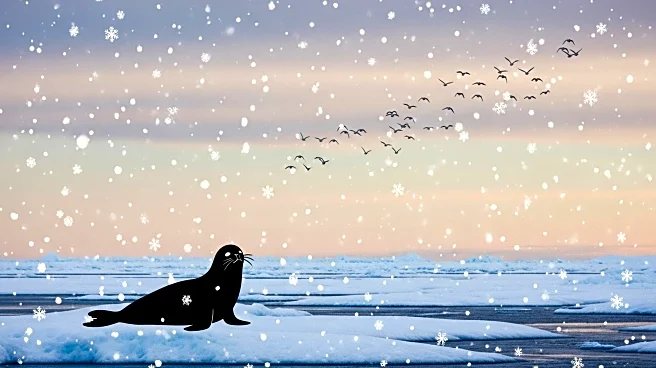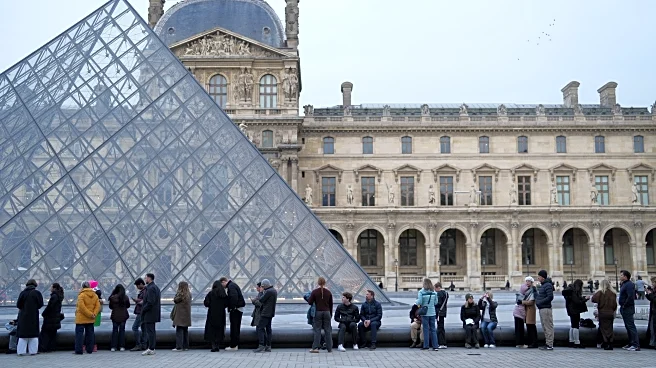What's Happening?
The International Union for Conservation of Nature (IUCN) has released its updated Red List of Threatened Species, revealing alarming trends in biodiversity loss. The report, presented at the IUCN World Conservation Congress in Abu Dhabi, indicates that three species of Arctic seals are facing extinction due to the rapid retreat of sea ice caused by global warming. Additionally, the report highlights that 61% of bird species globally are in decline, primarily due to habitat loss driven by agriculture and logging. The Red List now includes 172,620 species, with 48,646 threatened with extinction. Despite these challenges, the report notes a positive development with the rebound of green sea turtle populations, attributed to successful conservation efforts.
Why It's Important?
The findings of the IUCN Red List underscore the severity of the biodiversity crisis, which has significant implications for ecosystems and human societies. The decline in Arctic seal populations threatens the delicate balance of the Arctic ecosystem, impacting species like polar bears that rely on seals for food. The global decline in bird populations affects ecosystem services such as pollination, pest control, and seed dispersal, which are vital for maintaining healthy environments. The report calls for urgent action from governments and conservationists to address these issues, emphasizing the interconnectedness of climate change and biodiversity loss.
What's Next?
The IUCN World Conservation Congress serves as a platform for conservation leaders and policymakers to collaborate on strategies to combat biodiversity loss. The upcoming UN Climate Change Conference (COP30) in Brazil is expected to further address these issues, with discussions likely influenced by the findings of the Red List. The IUCN aims to prioritize conservation efforts and resource allocation based on the Red List data, advocating for strategic investments to maximize impact. Continued monitoring and updates to the Red List will guide future conservation actions.
Beyond the Headlines
The Red List's revelations highlight ethical and cultural dimensions, as Indigenous communities often rely on biodiversity for their livelihoods and cultural practices. The loss of species can disrupt traditional ways of life and exacerbate social inequalities. Furthermore, the report stresses the need for global cooperation in conservation efforts, recognizing that biodiversity loss is a shared challenge requiring collective action. The success story of the green sea turtle demonstrates the potential for positive change when conservation efforts are coordinated and sustained.











